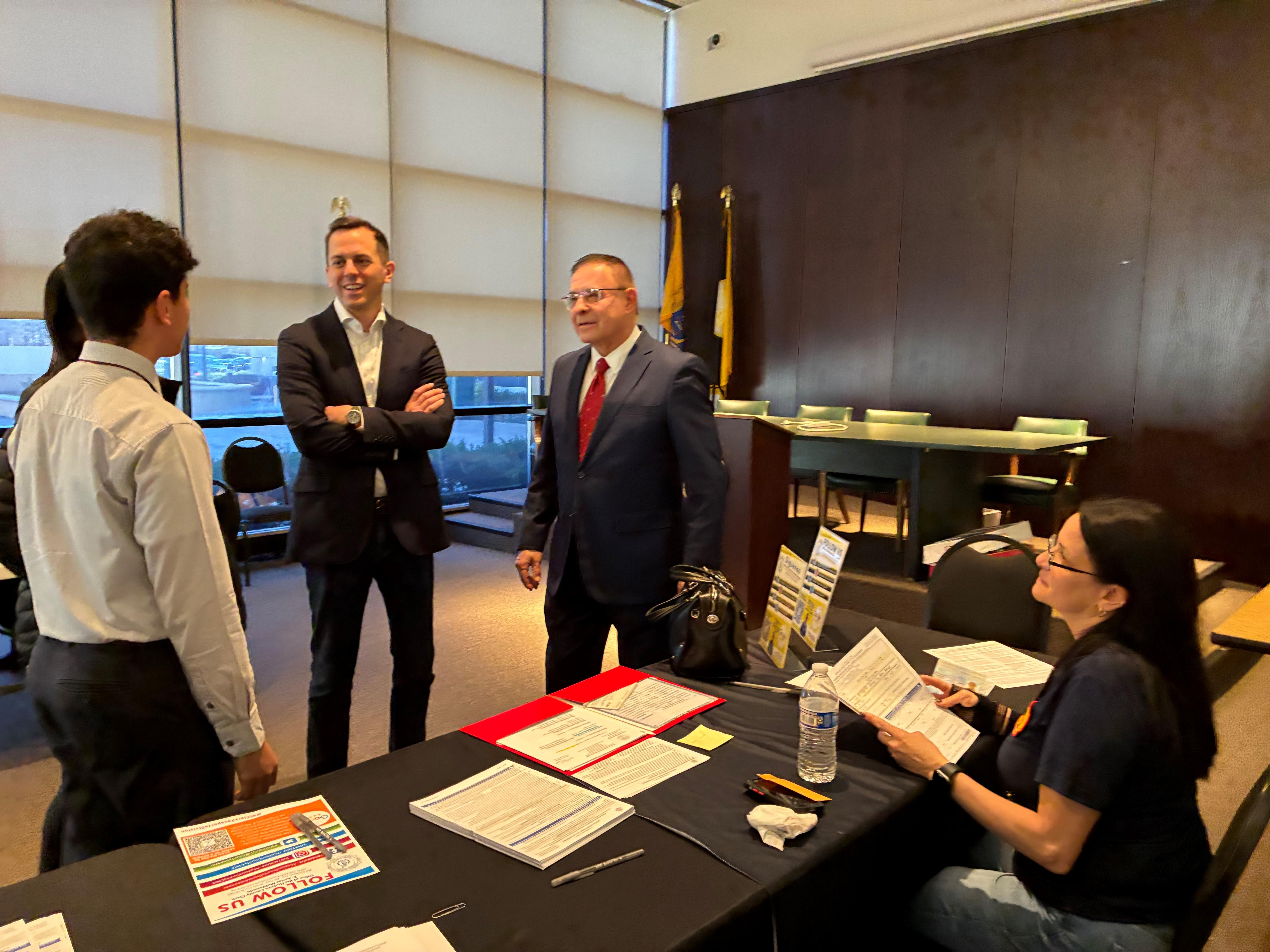The New York City Mayor’s Community Affairs Unit held the first Filipino roundtable discussion at City Hall last week, convened by Mayor Eric Adams and First Deputy Mayor Maria Torres-Springer. The event, organized in recognition of Filipino American History Month, brought together city officials and Filipino leaders to address pressing issues facing the Filipino American community, focusing on ways to support Filipino businesses, community health centers, and community-based organizations.
First Deputy Mayor Torres-Springer, known for her commitment to inclusive policies and economic resilience, emphasized the administration’s dedication to improving New York City for all communities.
“This is the first time that the Filipino community has gathered in this format in this building,” Torres-Springer said. “It’s been really important to Mayor Adams that we not only open this building, which is the people’s building, to our diverse, beautiful communities across the five boroughs, but that we also open up government in ways that may not have been accessible before.”
The conversation covered unique challenges faced by Filipinos in neighborhoods like Little Manila, where concerns include public safety, such as issues related to the sex trade, and the need for stronger connections to community-health programs.
Rachelle Ocampo, co-host of Makilala TV and the president of the National Federation of Filipino American Associations (NaFFAA) New York, highlighted the challenges faced by New York’s Filipino American community during the roundtable.
She shared that approximately 146,000 Filipinos reside in New York State, with around 89,000 living in New York City, making Filipinos the fourth-largest Asian American and Pacific Islander (AAPI) group in the region. Despite these numbers, Ocampo pointed out a lack of government investment and support for Filipino-led organizations, which creates significant service gaps. She emphasized that, to date, only one Filipino organization in New York State has a single full-time paid staff member, and fewer than three received new funding in New York City’s latest grant cycle.
Ocampo called for critical changes to support the Filipino community in meaningful and sustainable ways. She advocated for immediate funding to hire staff for a dedicated community center—a resource the community currently lacks. Additionally, she stressed the need for resources to educate Filipino leaders on grant access and financial management to help these community organizations grow.
Community members expressed that while resources are available, they are often hard to navigate. Filipino business owners, particularly women- and minority-owned businesses, also spoke about difficulties in accessing city certifications and connecting to larger projects, which impacts their economic opportunities.
“Our Filipino American community called attention to the need for funding directed toward our community through nonprofit organizations, as well as the inclusion of our women-owned and small businesses in development projects like the Citifield parking area,” said lawyer Lara Gregory. “We’re hoping to have specific small business seminars and nonprofit workshops on grant acquisition and other ways to ensure that available resources are easily accessible to our community.”
“The meeting helped us to air out some of the issues that the Filipino community is facing, making us feel heard. Seeing a Filipina leader, the top AAPI-appointed city official, First Deputy Mayor MTS, was a sign of hope for more serious changes,” Ocampo told the Asian Journal. “Let’s see if they’ll follow up on all the points they said they’d look into.”
She hopes that Filipino groups will learn how to build capacity with city resources so the community can establish more organizations with paid staff to provide direct services. “I hope the Mayor will stay true to his word and match the funds we get from the federal government to build a brick-and-mortar community center, so we have a place we can trust to receive critical resources and referral services,” Ocampo added.
The roundtable emphasized actionable outcomes beyond symbolic representation. Torres-Springer committed to ongoing dialogue, aiming to implement initiatives that directly benefit Filipino American families.





